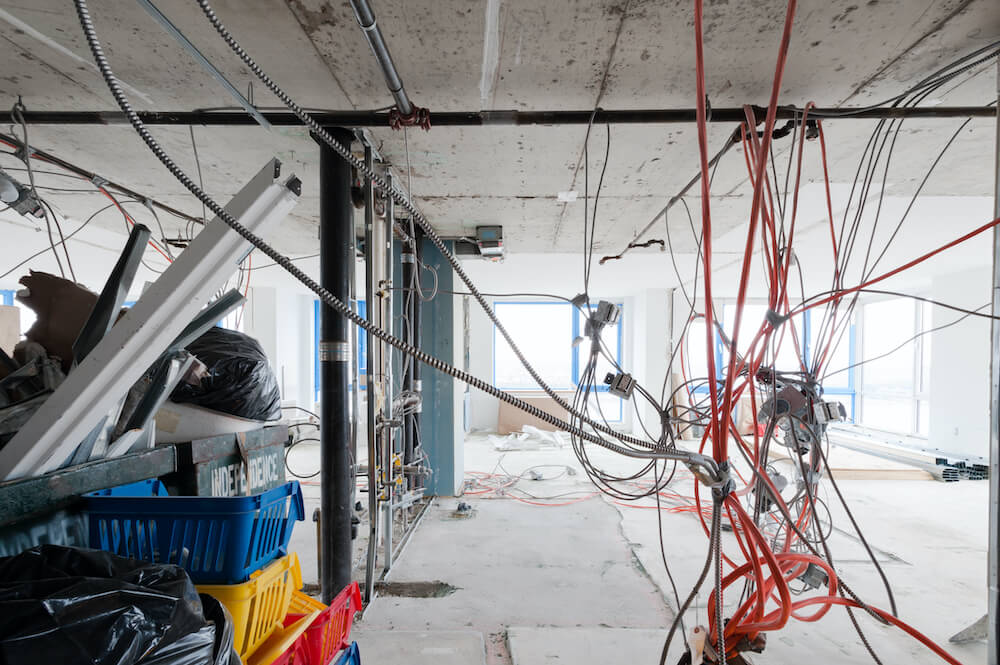What to Expect During a Home Electrical Inspection
A home electrical inspection is a crucial step in ensuring the safety and functionality of your electrical system. Whether you’re buying a new home, renovating, or simply want to ensure your electrical wiring is up to code, a thorough inspection can provide valuable insights. In this guide, we’ll walk you through the step-by-step process of a home electrical inspection, highlighting what to expect and why it’s so important.
At Sweeten, we’re experts at all things general contractors — we pre-screen them for our network, carefully select the best ones for your remodeling project, and work closely with hundreds of general contractors every day. So, we’ve tapped our internal expertise to bring you this guide.
The inspection process
1. Visual Inspection: The inspector will begin by visually examining the electrical panel, wiring, outlets, and switches throughout your home. They will look for signs of damage, corrosion, or improper installation.
2. Testing and verification: The inspector will use specialized equipment to test the electrical system for voltage, amperage, and grounding. They will also verify that all circuits are functioning properly and that there are no overloaded outlets or breakers.
3. GFCI testing: Ground Fault Circuit Interrupter (GFCI) outlets are required in areas near water sources, such as bathrooms and kitchens. The inspector will test these outlets to ensure they are functioning correctly. Sweeten brings homeowners an exceptional renovation experience by personally matching trusted general contractors to your project, while offering expert guidance and support—at no cost to you. Renovate expertly with Sweeten
4. Smoke detector inspection: Smoke detectors are essential for fire safety. The inspector will check to ensure that all smoke detectors are installed correctly and working properly.
5. Carbon monoxide detector inspection: Carbon monoxide detectors are also important for safety. The inspector will check to ensure that all carbon monoxide detectors are installed correctly and working properly.
6. Electrical panel inspection: The inspector will carefully examine the electrical panel, including the breakers, wiring, and grounding. They will look for signs of wear, damage, or overload.
7. Wiring inspection: The inspector will inspect the wiring throughout your home, including the attic, basement, and crawl spaces. They will look for signs of damage, corrosion, or improper installation.
8. Outlets and switches inspection: The inspector will examine all outlets and switches in your home, looking for signs of signs of damage, loose connections, or overloaded circuits.
9. Arc Fault Circuit Breaker (AFCI) inspection: AFCIs are required in bedrooms and family rooms in the United States to help prevent electrical fires caused by arcing faults. The inspector will test these breakers to ensure they are functioning correctly.
10. Aluminum wiring inspection: If your home has aluminum wiring, the inspector will check for signs of corrosion and degradation. Aluminum wiring can be a safety hazard if it is not properly installed or maintained.
11. Knob and tube wiring inspection: If your home has knob and tube wiring, the inspector will check for signs of wear and tear. Knob and tube wiring is an older type of wiring that is no longer used in new construction. It can be a safety hazard if it is not properly maintained.
Why home electrical inspections are important
Home electrical inspections are essential for several reasons:
- Safety: A faulty electrical system can pose a serious fire hazard. Regular inspections can help identify and address potential safety issues before they become a problem.
- Code compliance: Ensuring that your electrical system complies with local building codes is important for safety and resale value.
- Home value: A well-maintained electrical system can increase the value of your home.
- Peace of mind: Knowing that your electrical system is safe and up to code can provide you with peace of mind.
A home electrical inspection is a valuable investment that can help ensure the safety and functionality of your electrical system. By understanding the inspection process and the importance of regular inspections, you can take steps to protect your home and family. Here are some additional tips for getting the most out of your home electrical inspection:
- Schedule your inspection in advance. This will help ensure that the inspector has enough time to complete a thorough examination.
- Be present during the inspection. This will allow you to ask questions and learn more about the condition of your electrical system.
- Ask for a detailed report. The inspector should provide you with a written report outlining their findings and recommendations.
- Follow up on any recommendations. If the inspector identifies any issues, be sure to address them promptly to ensure the safety of your home.
Home electrical inspection checklist
Here is a checklist of items that an electrical inspector will typically examine during a home electrical inspection:
- Electrical panel
- Wiring
- Outlets and switches
- GFCI outlets
- Smoke detectors
- Carbon monoxide detectors
- Arc fault circuit breakers
- Aluminum wiring
- Knob and tube wiring
- Overall safety and code compliance
We can help plan your renovation
Find endless home renovation inspiration, detailed guides, and practical cost breakdowns from our blogs. You can also post your project on Sweeten today and get matched with our vetted general contractors and get estimates for free!










